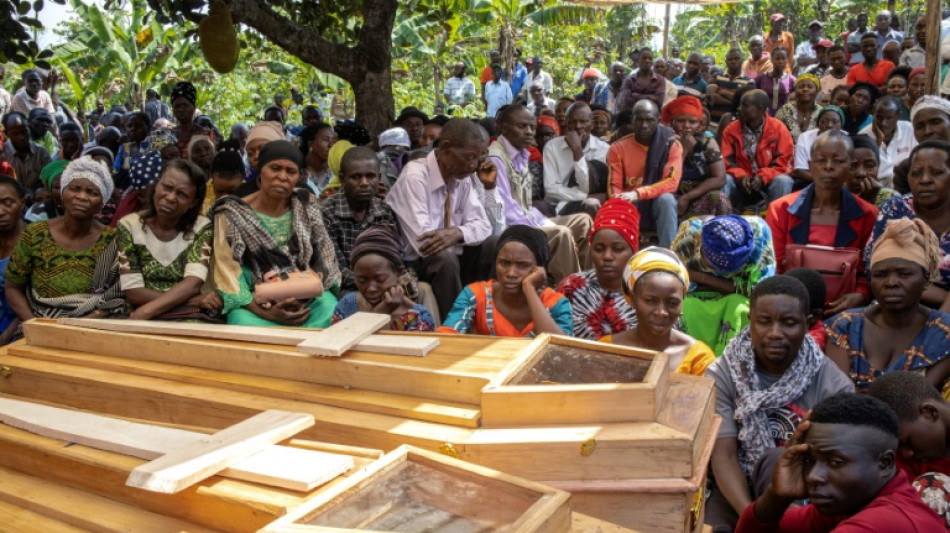
Ugandans bury more victims of horrific school massacre

Grief-stricken Ugandans were on Monday burying more victims of last week's horrific school attack in the remote west of the country blamed on a notorious militia based in neighbouring Democratic Republic of Congo.
Other families were still desperately hunting for news of their loved ones or facing an agonising wait for DNA tests on some of the students who were burnt beyond recognition in the assault on Lhubiriha Secondary School in Mpondwe, close to the DRC border.
At least 41 people, most of them students, were massacred in Friday's late night raid, with victims hacked with machetes, shot and burned to death.
The authorities have said 15 people from the community, including five girls, were still missing.
Joseph Masika, a guardian of one of the missing students, recounted heart-wrenching visits to mortuaries and hospitals.
"We are not sure our children are among those abducted or burnt beyond recognition. We are distressed, maybe the government will give us an answer soon and we are praying," the 48-year-old businessman told AFP.
"It's a painful situation no parent would want to go through, but we are keeping hope that they are alive wherever they are."
- 'Security under control' -
Ugandan authorities have blamed the Allied Democratic Forces (ADF) and are pursuing the assailants who fled back towards the porous DRC border with six abductees.
"Their action -- the desperate, cowardly, terrorist action -- will not save them," President Yoweri Museveni said Sunday in his first statement on the attack, vowing to hunt the militants "into extinction."
Officials said 37 students were killed along with another four people, including a security guard.
Joe Walusimbi, the Resident District Commissioner of Kesese, the area where the school was located, said most of the identified victims were buried on Sunday but that there were more funerals on Monday.
"We are almost complete with the burial of the dead already identified and waiting for the DNA tests of those students who were burnt beyond recognition," he told AFP.
Walusimbi denied social media reports that the authorities were closing schools in the area.
He said the "security situation is under control", and appealed for calm.
It was the deadliest attack in Uganda since twin bombings in Kampala in 2010 killed 76 people in a strike claimed by the Somalia-based Al-Shabaab group.
The ADF, an armed group historically linked to predominantly Muslim Ugandan rebels opposed to Museveni, has been blamed for thousands of civilian deaths in the DRC since the 1990s.
The IS describes the ADF as its regional affiliate, the Islamic State Central Africa Province (ISCAP). In March 2021, the United States placed the ADF on its list of "terrorist groups" affiliated with IS.
M.Jacobucci--PV
